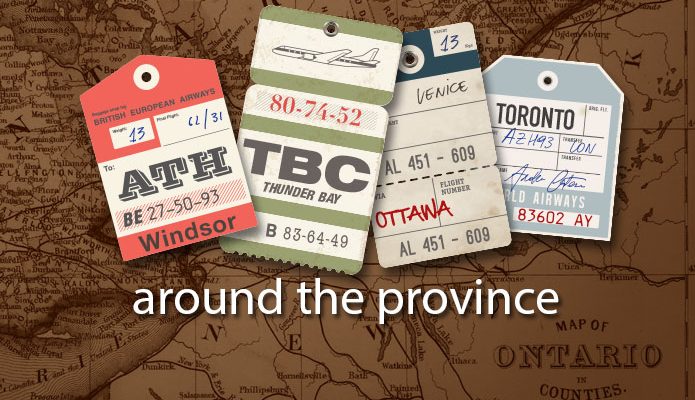
Bridge between: The 2019 OCULA Spring Conference
By Chris Tomasini and Sarah Shujah
The OCULA Spring Conference, Bridge Between: Information Literacy Challenges, Needs and Opportunities for Students’ Transition from High School to University/College, took place on April 26, 2019 at the Ontario Institute for Studies in Education (OISE) at the University of Toronto. A collaboration with the Ontario School Libraries Association (OSLA), the one-day conference built upon a workshop from the 2019 OLA SuperConference and focused upon teaching information literacy skills to students entering college and university.
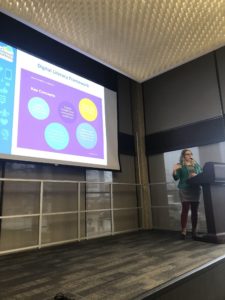
Librarians and educators from various sectors attended the event, and after a keynote address by Kara Brisson-Boivin, Director of Research at MediaSmarts, the day consisted of hands-on workshops exploring information literacy instruction as per OSLA’s Together for Learning document and the Framework for Information Literacy for Higher Education from the Association of College and Research Libraries (ACRL).
Participants explored and discussed each framework and the connections between the two. We strengthened understanding of the ACRL Framework at each stage, culminating in a teaching redesign session: academic librarians worked with teacher-librarians and other educators in small groups to redesign a teaching scenario to engage transitioning students with at least one of the ACRL frames, while keeping in mind the learning objectives from Together for Learning. You can review the materials from the conference for more details on what participants produced.
One of the most popular sessions was a series of five lightning talks from academic, school, and public librarians that described local efforts to address the ‘gap’. For example, Shelagh Straughan’s lightning talk discussed her efforts at Trinity College School to pre-orient Grade 12 students to their future academic libraries by exploring a university library website with them, identifying the names of liaison librarians, and highlighting other library services, supports and spaces, such as quiet study areas.
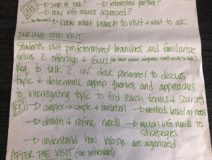
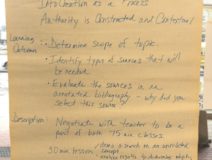
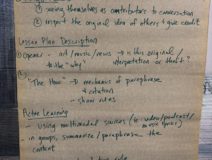
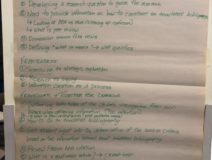
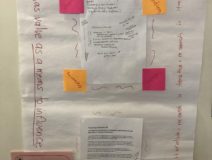
Apart from the focus on approaches to library instruction, one of the key benefits of the conference was the simple act of collaborating with librarians and other educators on the other side of the ‘gap’. Teacher-librarians gained better knowledge of the ACRL Framework and the research challenges students face during their first year at college and university, while academic librarians learned more about teacher-librarians’ opportunities for information literacy instruction in the later years of high school.
Participants attended the conference overwhelmingly because of the theme, and it seems that this work has only just begun: in post-event feedback, they shared that they are hungry for more opportunities to collaborate with their counterparts in other sectors. One participant noted: “Honestly this conversation was fantastic and I’m thrilled that it wasn’t a room full of academic librarians. If our professions are to succeed we should be creating rooms where all sectors are coming together and comparing notes. Please do this again, even if it’s just to expand on the same topic. I know that there were many who were unable to attend.”
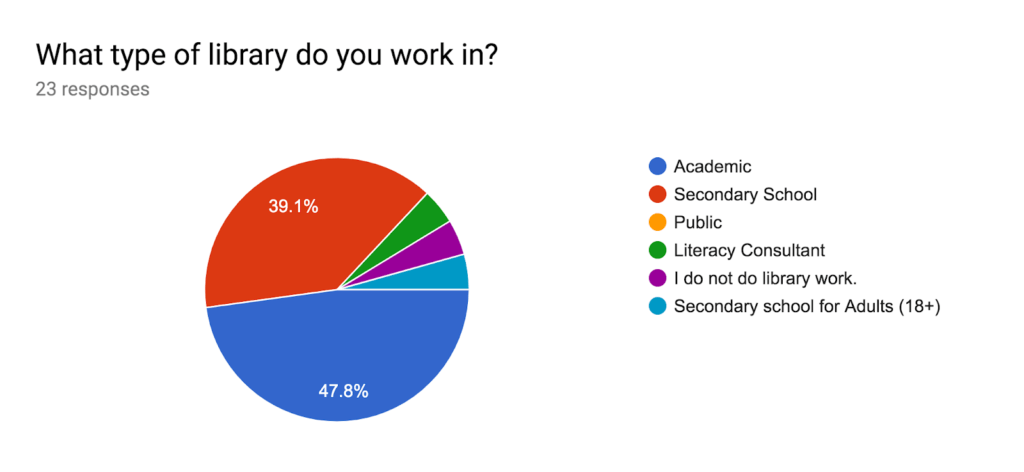
Considering the interest in this topic, we will continue this conversation at the 2020 OLA Super Conference with the workshop Easing the High School to University/College Transition: Building Effective Programming to Bridge the Information Literacy Gap. In addition, the Ontario School Library Impact Project (OSLIP) is researching the impact of school libraries on the development of key information literacy skills of students entering post-secondary education.
The Bridge Between conference was organized by:
- Sarah Shujah (Chair), University of Toronto Libraries
- Samhita Gupta, Branksome Hall
- Kate Johnson-McGregor, Grand Erie DSB
- Sophie Bury, York University
- Chris Tomasini, Lakehead University
- Cyndi Smith, Georgian College
We are also grateful to Sarah Roberts and Emily Burns from OLA for planning support. Finally, we would like to thank our sponsors: Ontario Teacher Education Library Association (OTELA), Mintel, University of Toronto Libraries, and York University Libraries. Our sponsors help OCULA offer opportunities like the Spring Conference at a reasonable fee, and at subsidized cost to students and job seekers.
We hope to see many of you at our OLA Super Conference 2020 workshop and at next year’s Spring Conference!
Chris Tomasini is the Online Learning Librarian at Lakehead University’s Orillia campus. You can contact Chris at ctomasin [at] lakeheadu.ca.
Sarah Shujah is the Entrepreneurship and Liaison Librarian at the University of Toronto Scarborough. She is also currently a SPARC Open Education Fellow. You can contact Sarah at sarah.shujah [at] utoronto.ca.


